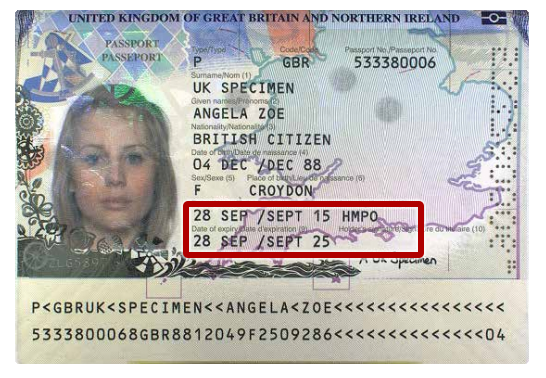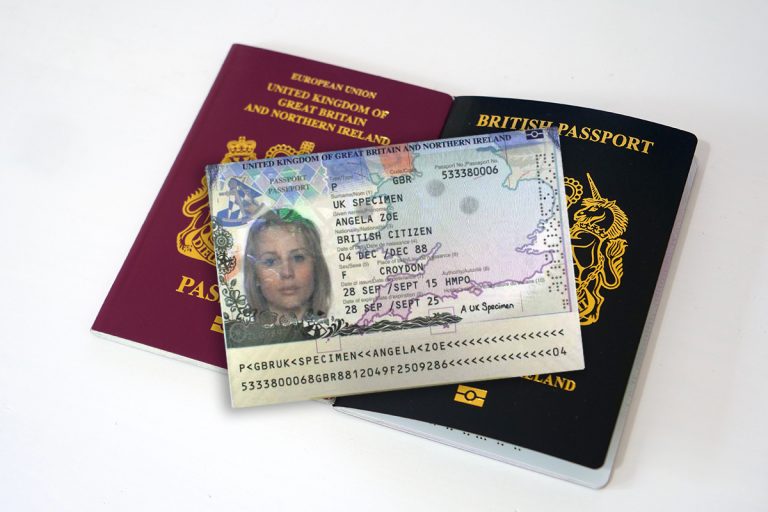Don't Let Your Passport Ruin Your Next Holiday!
The rules have changed
Since Brexit, there’s been a change to passport rules if you’re intending to travel to the EU with a UK passport.
These changes have been in place since 1st January 2021 but as nobody was travelling at that point, it wasn’t widely spoken and more than two years on, this rule is still sending many a traveller home from the airport.

What Rules Have Changed For UK Passports?
As we are no longer part of the EU, we are classed as a ‘third nation country’ by the EU and therefore must follow the same rules as everyone else in that group.
Before, we would have been able to travel to the EU up to and on the day that our passport expired.
In addition, if we had more than 10 years on our passport – a regular occurrence in the past when the passport office would add on any leftover months on your previous passport when you renewed – we would be able to travel using those dates too.
However, both of these things have now changed.
What Are the New Passport Rules for UK Travellers?
For this, let’s take a look at what the official EU wording is:
“If you are a national from a country outside the EU wishing to visit or travel within the EU, you will need a valid passport and possibly a visa. Your passport should be valid for at least 3 months after the date you intend to leave the EU and it must have been issued within the last 10 years. This means your travel document must have been issued within the previous 10 years the day you enter the EU on condition that is it valid until the end of your stay plus an additional 3 months.”
In essence, your passport must be:
- valid for at least 3 months after the day you plan to leave
i.e. compare the date after you leave the EU against the ‘expiry date’ in your passport - issued less than 10 years before the date you enter the country
i.e. compare the date before you enter the EU against the ‘date of issue’ in your passport
The last one is the bit that is catching most people out as some older passports are valid for more than 10 years, and the EU does not recognise these extra months anymore.
There’s also something else important to bear in mind…

Do I Need to Meet Both of Those Conditions Simultaneously?
Great question!
It took some time to get confirmation on this but it turns out that the two conditions above are in fact independent of each other.
To explain the relevance, let me use an example.
Sarah is travelling to an EU country on 29th August 2024 and flying home on 1st September 2024. Her passport was issued on 1st November 2014. It expires 15th March 2025.
Can she travel under the new rules?
Well let’s go through this.
Is Sarah’s passport valid for at least 3 months after the date she intends to leave the EU?
Date after Sarah is due to leave the EU: 2nd September 2024
Sarah’s passport expiry date: 15th March 2025
With 6 months and 13 days left on her passport, we can confidently answer that yes, Sarah’s passport is valid for at least 3 months after the date she intends to leave the EU.
Was it issued within the previous 10 years on the date before she entered the EU?
Date before Sarah is arriving in the EU: 28th August 2024
Sarah’s passport date of issue: 1st November 2014
On the date before Sarah enters the EU, her passport is only 9 years, 9 months and 27 days old and so again yes, we can confidently conclude that Sarah’s passport was issued within the previous 10 years on the date she enters the UK.
The reason this is significant is because if both of the conditions were used simultaneously, you would come to the conclusion that Sarah’s last possible day to enter the EU would be 31st July 2024 – 3 months prior to the date when her passport would reach 10 years.
What if the Airline Staff Refuse My Passport Even Though It’s Valid?
Sadly, there have been instances where travellers have been wrongly turned away due to an incorrect reading of the rules.
If you run into any issues, my best advice is for you to search the country you’re travelling to followed by the letters ‘FCDO’ e.g. ‘Greece FCDO‘ which will bring up the UK’s Foreign Office website. Click on ‘Entry Requirements‘ and scroll to ‘Passport Validity Requirements’ which details the rules clearly.
Otherwise, please feel free to use this reasoning to explain why your travel is fine, and you can also quote Simon Calder at The Independent who has done extensive work on getting this information out there too.

Why Does My Passport Have Over 10 Years on It?
In the past, if you renewed your passport before it expired, the Passport Office would – rather kindly – ‘roll over’ the months onto your next passport.
After leaving the EU, the UK government finally realised that this was going to confuse matters and stopped doing this in 2018. However, it does mean there are plenty of passports still out there that have more than 10 years on them.
Didn’t the UK Home Office Say I Need To Have 6 Months Left on My Passport?
They did say this in the past but fortunately, they have removed this advice from their travel guidance.
The reason they have previously recommended 6 months is because the longest journey we can now take in the EU is 90 days, and therefore 6 months covers all possible trips – but there’s absolutely nothing wrong with you travelling for a shorter trip as long as you still have that magical 3 months left on the day you come home.
Is This for All EU Countries?
Yes, though there is one exception – Ireland! This is because Ireland is part of the Common Travel Area and as a British citizen, you do not need a British passport to enter Ireland. However some carriers and airlines do require it as a form of ID – it’s always best to check!
If you are a British citizen, you do not need a passport to enter Ireland.
What Are the Passport Rules for Non-EU Countries in the Schengen Zone?
The same rules also apply for non-EU countries in the Schengen area, which are: Switzerland, Norway, Iceland, Liechtenstein, Andorra, Monaco, San Marino and Vatican City.
What About Countries Outside of Europe?
There is no hard and fast rule other than: always check the passport validity of a country you’re visiting!
For example, Turkey requires you to have at least 150 days from the date you arrive whilst USA just needs your passport to be valid for the proposed duration of your stay.
To check, just search for the country you’re visiting followed by ‘FCDO entry requirements’ and read the information there.
What About the Extra Months on My Child’s Passport?
If your child was 15 years of age or younger when the passport was issued, it will be valid for 5 years as standard. Therefore, you do not need to worry about whether any extra months will be valid on a 5 year passport as they will always meet the 10 years requirement. They do, of course, still need to have at least 3 months on them after the date you intend to leave the EU.












